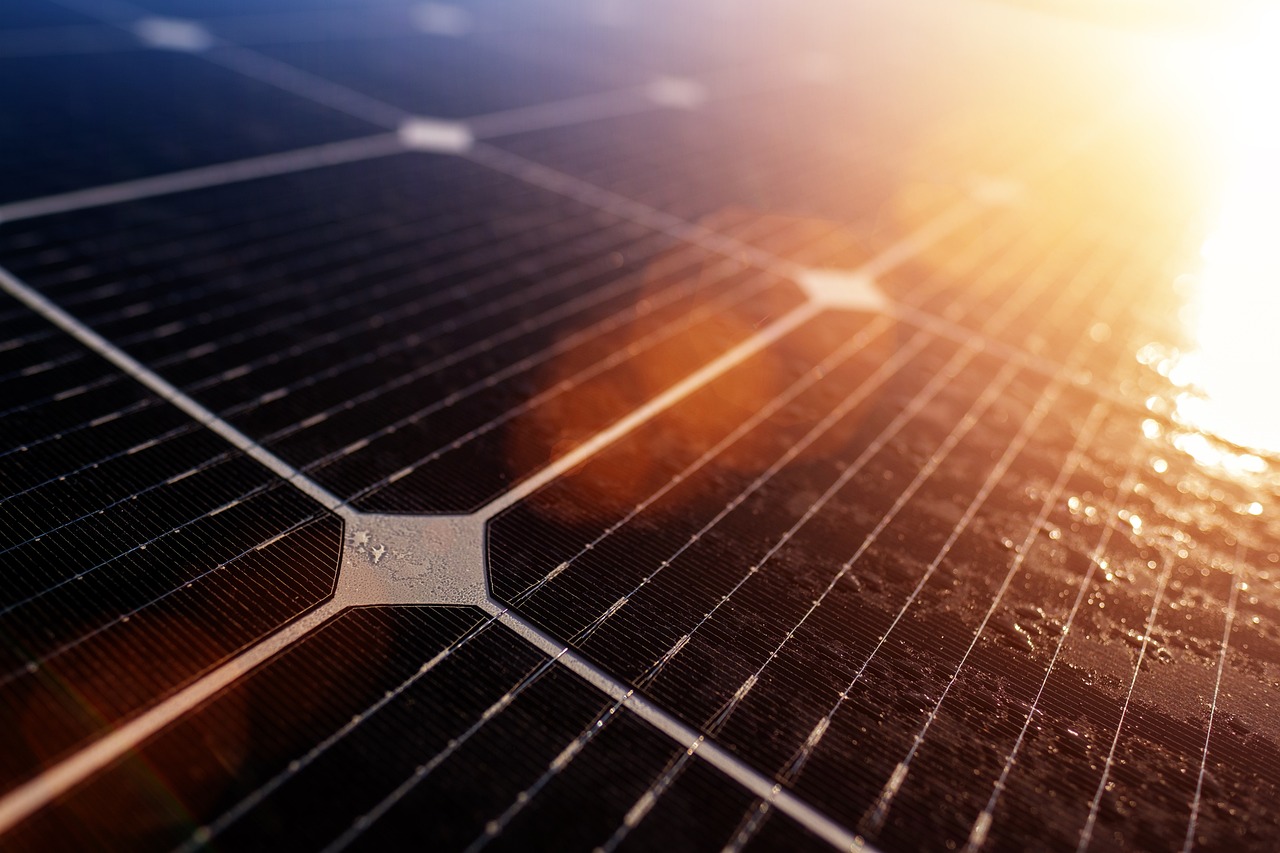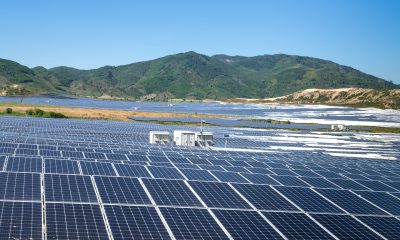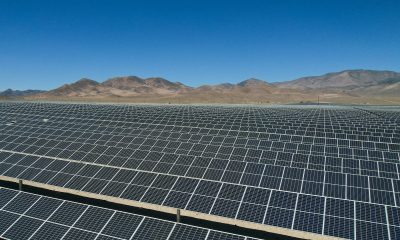Featured
3Sun Obtains €560M Project Financing from UniCredit
Besides 3Sun project, also in recent weeks, Italvolt’s €4 billion project regarding one of Europe’s largest gigafactories announced in February 2021 that was to be built in Ivrea in the former Olivetti area of Scarmagno (Turin), to develop which a technology partnership agreement was recently signed with Israel’s StoreDot, has been much discussed.

3Sun, a subsidiary of Enel Green Power, has obtained a loan from UniCredit for up to €560 million, divided between €475 million senior term loan and €85 million VAT loan covered for 80 percent by SACE’s green guarantee. With this financing, the company will expand Italy’s largest solar panel factory, which is located in Catania, Italy.
The investment will contribute to the development of Tango (iTaliAN pv Giga factOry), an industrial-scale production facility for innovative, sustainable, high-performance photovoltaic (pv) modules at 3Sun. In line with the agreement, the expansion of the factory will result in a 15-fold increase in its production capacity, to 3 GW per year from the current 200 MW. It should be fully operational by July 2024, after starting with the first 400 mw in September 2023.
Read more on the subject and find the latest business news of the day with the Born2Invest mobile app.
3Sun’s production will include bifacial heterojunction (b-hjt) photovoltaic cells, i.e., capable of responding to light on both surfaces (front and back), thus capturing more solar irradiation
Through an ambitious research and development program, the photovoltaic panels will be further developed to also incorporate a structure called “Tandem,” which uses two stacked cells that allow more light to be captured than single-cell structures, producing higher overall efficiency.
The 3 GW of panels produced will be able to generate up to about 5.5 TWh of renewable electricity per year, which from a sustainability perspective has the potential to avoid the equivalent of nearly 25 million tons of CO2 in their first ten years of operation. Similarly, the output generated by the gigafactory’s panels has the potential to avoid the purchase of nearly 1.2 billion cubic meters of gas per year, replaced by internally produced renewable energy.
Francesco Starace, Enel’s CEO, commented, “With the signing of this long-term project financing we have reached another important milestone for the gigafactory, confirming the robustness and attractiveness of the initiative. With this project, we are demonstrating the feasibility and scalability, including financially, of a sustainable industrial model that can be replicated for other factories of this type to be developed in the coming years in other countries as well.”
“We are pleased to have made a decisive contribution to the success of this deal, which will provide our country with a high-tech production facility of a size that will help significantly reduce dependence on fossil fuels,” said Andrea Orcel, CEO of UniCredit, adding, “In 2022 UniCredit generated €11.4 billion in new green and sustainability-related loans.”
Industrie De Nora in a joint venture with Snam, finalized the acquisition of a disused industrial area to build a Gigafactory
Staying on the topic of gigafactory, recall that only a few weeks ago Industrie De Nora, which specializes in sustainable technologies and the nascent green hydrogen industry, in a joint venture with Snam, finalized the acquisition of a disused industrial area southeast of the Cernusco sul Naviglio area for the realization of the Italian Gigafactory project.
The project envisages, following the demolition of the existing buildings, the construction of a large-scale production hub with a capacity of up to 2GW for the production of electrolyzers for the generation of green hydrogen, systems, and components for the electrolysis of water and fuel cells, as well as the construction of facilities to serve the group’s other divisions.
The production complex will occupy approximately 25,000 square meters, and the design of the plant will be an opportunity to redevelop the area “on a human scale” by adopting a modern concept of industrial architecture, based on criteria of respect for the environment and sustainability, through renewable energy generation, the use of photocatalytic materials capable of decomposing air pollutants, light mobility projects and urban reforestation.
Construction of the Gigafactory is scheduled to begin in the second half of 2023 subject to the successful completion of the permitting process that will unfold in the coming months.
Also in recent weeks, Italvolt’s €4 billion project regarding one of Europe’s largest gigafactories announced in February 2021 that was to be built in Ivrea in the former Olivetti area of Scarmagno (Turin), to develop which a technology partnership agreement was recently signed with Israel’s StoreDot, has been much discussed. The binding agreement for the purchase of the one-million-square-meter area in the municipality of Scarmagno had then been signed in September 2021 with the seller Prelios sgr, manager of the Monteverdi Fund.
However, last November the preliminary purchase agreement had expired and ItalVolt was said to be negotiating with Prelios for an extension
But evidently, the deal did not close in the end. Swedish entrepreneur Lars Carlstrom recently declared it impossible to get the project off the ground at the site that was supposed to house the 45 GWh fully sustainable battery factory (enough to power 550,000 electric cars a year), also complaining that, after years of deindustrialization, the former Olivetti hub’s power grid is inadequate to support the needs of energy-intensive products such as battery manufacturing. What’s more, there is an obvious problem with fundraising.
In fact, Carlstrom started with a capital of just 10 million, just under half of which would have been spent to acquire the land, and against a projected necessary investment of 3.4 billion euros (initially, there was even talk of 4 billion). Several times it announced the imminent arrival of investors, but so far they have not been seen. Work was supposed to start by the end of 2022 so that production could begin in 2024, but at the moment it is still at a standstill.
For Carlstrom, a longtime manager in various industries including automotive, this would be the second such mega-project failure after Britishvolt launched in the UK in 2020 with co-founder and CEO, Orral Nadjari, an Abu Dhabi financier. On the occasion, a total £2.6 billion investment was planned for the development of a gigafactory in Blyth, Northumberland, in northeast England.
The project, which had also received £100 million in support from the British government, envisioned that by 2027 the factory would employ 3,000 people and produce more than 300,000 lithium-ion batteries for the British automotive industry, totaling about 30 gigawatts. However, the British company went into receivership due to lack of funds, with the 300 or so employees being laid off overnight.
__
(Featured image by Bru-nO via Pixabay)
DISCLAIMER: This article was written by a third party contributor and does not reflect the opinion of Born2Invest, its management, staff or its associates. Please review our disclaimer for more information.
This article may include forward-looking statements. These forward-looking statements generally are identified by the words “believe,” “project,” “estimate,” “become,” “plan,” “will,” and similar expressions. These forward-looking statements involve known and unknown risks as well as uncertainties, including those discussed in the following cautionary statements and elsewhere in this article and on this site. Although the Company may believe that its expectations are based on reasonable assumptions, the actual results that the Company may achieve may differ materially from any forward-looking statements, which reflect the opinions of the management of the Company only as of the date hereof. Additionally, please make sure to read these important disclosures.
First published in Be Beez, a third-party contributor translated and adapted the article from the original. In case of discrepancy, the original will prevail.
Although we made reasonable efforts to provide accurate translations, some parts may be incorrect. Born2Invest assumes no responsibility for errors, omissions or ambiguities in the translations provided on this website. Any person or entity relying on translated content does so at their own risk. Born2Invest is not responsible for losses caused by such reliance on the accuracy or reliability of translated information. If you wish to report an error or inaccuracy in the translation, we encourage you to contact us.

-

 Impact Investing2 weeks ago
Impact Investing2 weeks agoEnfinity Launches First Solar Plant in Italy with Microsoft
-

 Crypto4 days ago
Crypto4 days agoBitcoin Wavers Below $70K as Crypto Market Struggles for Momentum
-

 Markets2 weeks ago
Markets2 weeks agoSilver Dips Sharply, While Gold Gains Amid Mixed Stock Market
-

 Africa12 hours ago
Africa12 hours agoMorocco’s Tax Reforms Show Tangible Results
























